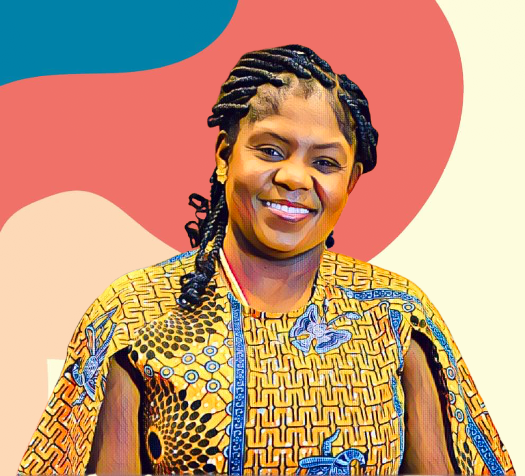Key Points
-
Colombian vice president in Abuja for official visit.
-
Talks to cover trade, security, and cultural exchange.
-
Visit signals renewed Colombia-Nigeria diplomatic cooperation.
The most high-profile meeting between Nigeria and Colombia in recent memory took place on Friday when Colombia’s Vice President Francia Márquez arrived in Abuja for a three-day official visit. At a time when both nations are looking for new opportunities in trade, security, and cultural cooperation, her arrival highlights Bogotá’s renewed interest in forging closer ties with Africa’s largest economy.
According to a report by the Punch news, senior Nigerian government officials and diplomats greeted Márquez, a former environmental activist who was elected Colombia’s first Afro-Colombian vice president in 2022, at Nnamdi Azikiwe International Airport. Her visit will involve bilateral meetings, business forums, and cultural engagements, according to officials, with the goal of strengthening ties that have existed since the 1970s but have not been fully explored.
The vice president of Colombia is in Abuja for a formal visit
Meetings at Nigeria’s Ministry of Foreign Affairs and discussions with Vice President Kashim Shettima are anticipated on the vice president’s schedule.
According to officials familiar with the visit, both parties are anticipated to sign cooperation agreements pertaining to energy, education, and agriculture.
The timing of Márquez’s trip is important, according to analysts. While Colombia is increasing its diplomatic presence in Africa, especially in nations with sizable populations of Afro-descendants, Nigeria is looking to diversify its trading partners beyond Europe and Asia.
Put an emphasis on security, trade, and cross-cultural collaboration
Given both nations’ struggles with transatlantic trafficking networks, diplomatic sources indicate that conversations will probably touch on maritime security and counter-narcotics. While Bogotá wants to learn from Nigeria’s expanding fintech industry, Nigeria is also anticipated to look into ways Colombia can share its knowledge of coffee and cocoa cultivation.
The focus will also be on cultural diplomacy. Márquez, a strong supporter of Afro-Latin unity, will meet with cultural leaders from Nigeria to talk about exchange initiatives and heritage preservation.
In Abuja, the Colombian vice president fortifies relations
The visit may restore ties between the two countries, according to observers. Nigerian officials think the partnership could open up new opportunities for South-South cooperation, despite Colombia’s small diplomatic presence in Africa.
“This visit has symbolic meaning. There is more to it than just economics. One diplomat based in Abuja stated, “It’s about two societies with shared struggles and aspirations.”
At a joint press briefing at the end of the three-day trip, both governments are anticipated to lay out specific plans to improve collaboration. The visit is currently regarded as a diplomatic milestone that could lead to a closer relationship between the third-largest economy in Latin America and West Africa.


